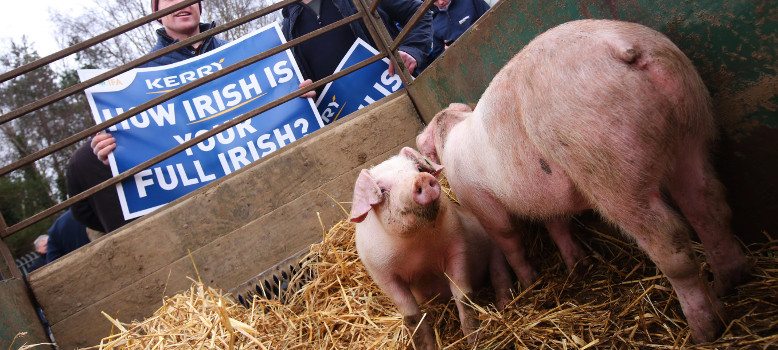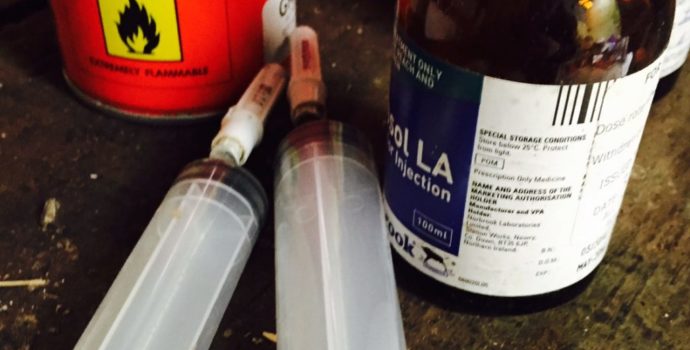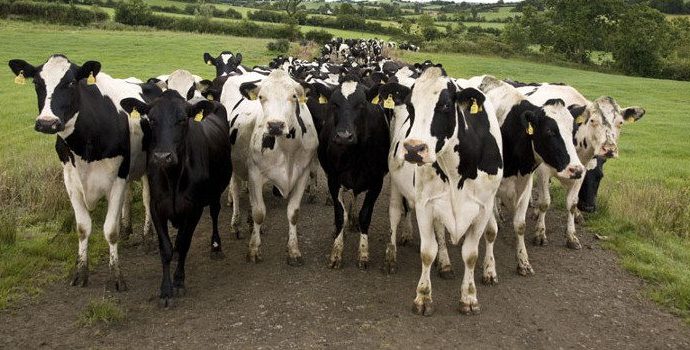The Pig League

IFA Pigs Exeucitve Deirdre O’Shea gives a rundown of the current pig market situation and proposed EU market measures.
Domestic market
February brought about some very unwelcome news for pig producers who were already struggling with poor prices. All factories dropped prices 4c/kg on the back of what processors report as a saturated market.
However, all factories did not drop prices in tandem, with Dawn and Stauntons holding out a week longer before deciding to follow the downward trend.
The weighted average price in February was €1.37/kg (including VAT), 6% behind February 2015 prices. Production costs according to Teagasc were €1.58/kg for the same period. This 21c/kg deficit is equivalent to a loss of approx. €5,000 per week on the average 600-sow unit producing 25 pigs per sow per year.
EU market situation
EU pig prices continue to come under pressure, with a 9.2% decline reported in prices YOY. The latest livestock survey from Europe shows a 2% decrease in breeding sows in December 2015 compared to December 2014.
The number of sows served is back 2.4%, while the number of gilts served is back 7.9% for the same period.
The most noted drop in sow numbers is from Belgium and Holland, while on the other hand Spain continues to push ahead with production, much to the amazement of other member states. Eighty-three per cent of total pigmeat production is derived from eight member States across Europe – Germany, Spain, France, Poland, Denmark, Italy, Holland and Belgium (in descending order).
At present, Europe is approximately 107% self-sufficient in pigmeat. Europe accounts for 20% of global pigmeat production, while China is the world’s largest producer, accounting for 46% of total pigmeat production. In addition, China is also a key market for EU exports, with 34% of total EU exports going to China in 2015.
Reports suggest that Russia is also trying to capitalise on the demands from the Chinese market with two Russian companies planning to create a pig-breeding cluster in the far east of the country within the next five years, designed to have the capacity for 1.2m pigs. Most of the production will be aimed for export to the neighbouring Chinese market, according to Russia’s agriculture minister.
Council of Ministers meeting
Ahead of the Council of Ministers meeting in Brussels on Monday, March 14th, member states have submitted proposals on possible market measures to be introduced to alleviate the ongoing difficult situation on the pigmeat market. The main message from member states is that the adverse effects from the closure of the Russian market are still being felt by farmers.
The EU farming body Copa-Cogeca said that prices remain very low in the pigmeat sector and they are urging the EU to intensify negotiations with Russia to re-open the Russian market as soon as possible. Copa said there also needs to be a mechanism introduced to encourage pork exports, such as export credits, and it is essential we find new market outlets for our produce.
The opportunity to re-engage and secure access for products outside the scope of the presidential decree, such as pig fats and offal should also be immediately pursued.
The Council of Ministers will meet on 14 March, when the various proposals from member states will be discussed.
Kerry Foods under spotlight
IFA staged a protest outside Kerry Foods plant in Shillelagh last week where the anger felt by pig farmers was clearly demonstrated. The reason for this protest was due to the persistent use by processors of brands that portray Irish origin on non-Irish product, while Irish pig farmers are experiencing the worst income crisis in decades.
Farmers said they are constantly told by processors that the home market gives the greatest return for their product. For this reason, farmers have made huge efforts to protect their home market, but the continued use of non-Irish pigmeat in household brands such as Galtee, Denny and others is clearly undermining that effort.
IFA national pigs committee chair Pat O’Flaherty said: “IFA is insisting that companies with Irish brands use 100% Bord Bia Quality Assured pigmeat in their products and that their labelling clearly indicates country of origin. An Irish company like Kerry Foods must appreciate the difficulties in the pig sector and make a more concerted effort to support Irish farmers and stop misleading consumers.” Farmers are waiting on a commitment from Kerry Foods in response to their proposal to use 100% Irish pigmeat in their Denny and Galtee brands.




